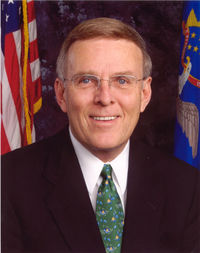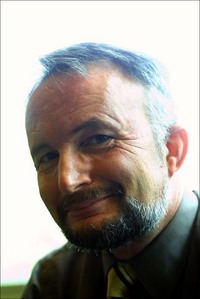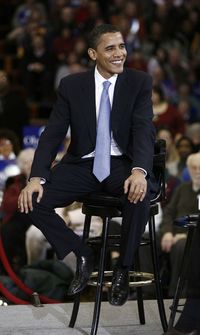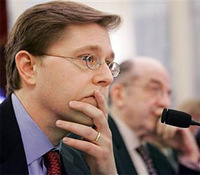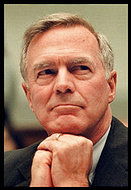 In a previous job, Donald Kerr said he was concerned about
In a previous job, Donald Kerr said he was concerned about
the “hollowing out” of U.S. manufacturing of satellite components. Although he said the design capability for the vehicles has remained in this country, “so much production has moved offshore that potentially has left us weaker.”In his current job as deputy director of national intelligence, what he’s recommending will drive more production offshore, because fewer qualified people will want to work in the U.S. Plus a government that wants to know everything about everyone online is not a government that will facilitate competition among ISPs, so the U.S. will continue to fall farther behind in Internet access, speed, and applications.— Reconnaissance Office Role to Be Reviewed, Satellite Agency’s Place Is Uncertain, By Walter Pincus, Washington Post Staff Writer, Friday, September 2, 2005; Page A27
Privacy no longer can mean anonymity, says Donald Kerr, the principal deputy director of national intelligence. Instead, it should mean that government and businesses properly safeguard people’s private communications and financial information.The article is full of bad arguments by Kerr. I suppose real arguments don’t matter when you’re taking the gloves off and revealing the true hand of government intervention in private matters. Continue reading— Intel official: Expect less privacy By Pamela Hess, Associated Press Writer, Updated: 11/11/07 11:47 PM
